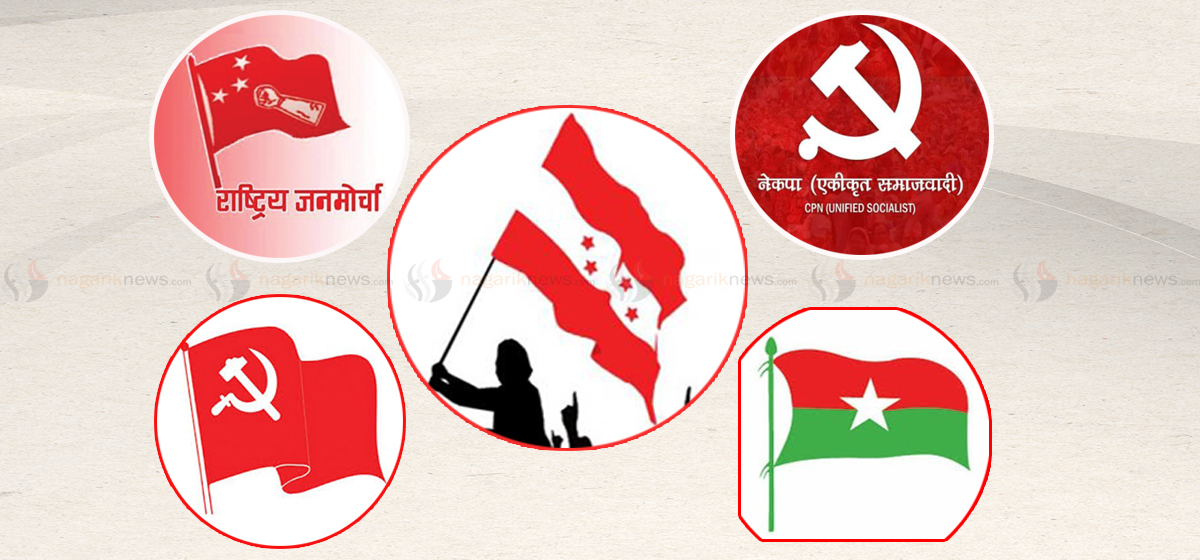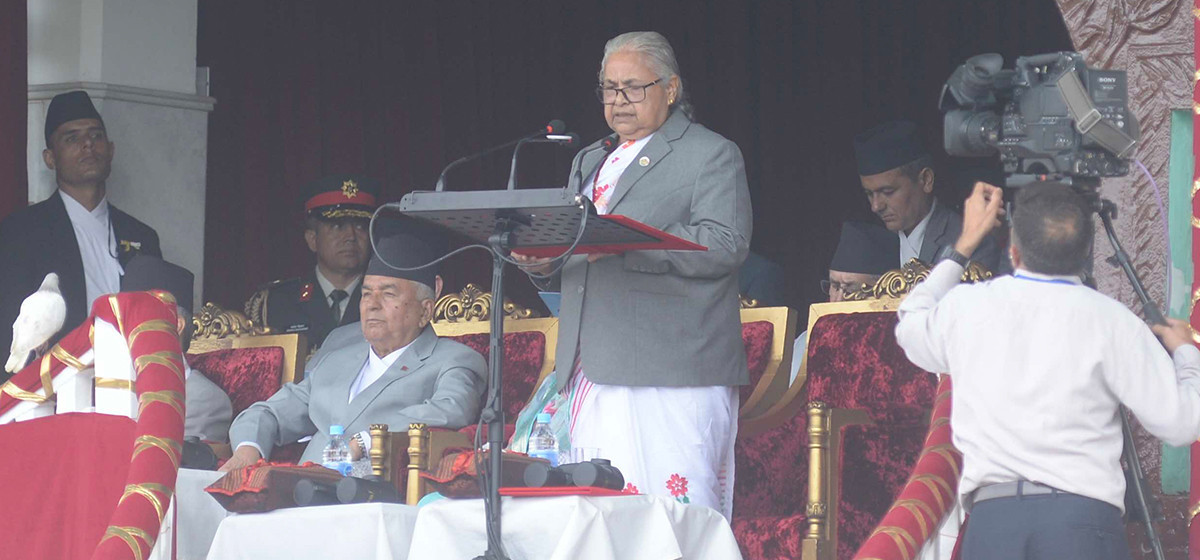A year ago, on July 15, 2024, the Nepali Congress and the CPN-UML formed a coalition government under KP Sharma Oli’s premiership on the strength of a seven-point agreement signed by Nepali Congress President Sher Bahadur Deuba and UML Chair Oli on the night of July 1, 2024. The largest and second largest parties in the House of Representatives not only decided to form the two-party consensus government but also pledged political stability, governance, and amendment to the constitution. However, a year into the government's term, discontent among coalition partners, protests, parliament boycotts, and failure to start constitutional reforms have raised doubts about the coalition’s ability to deliver.
New Direction
Pushpa Kamal Dahal Prachanda, who had headed the previous coalition government, resigned after a new understanding paved the way for a new government, the third since the November 2022 general elections. Prachanda's premiership on the past two occasions, which was characterized by shifting allegiances and frequent outreach to various parties to stay in power, infuriated and alarmed both Deuba and Oli. The Congress and UML stated that the previous coalition government led by Prachanda failed abjectly to guarantee reform, economic well-being, and governance. The new administration was constituted to garner a nearly two-thirds majority, essential to bring promised changes in the constitution and launch new programs.
Although many were taken aback by the formation of the new coalition because the NC and UML had a long-standing rivalry, the coalition partners termed the new bonhomie between them as necessary to give the nation a new political direction. There are, however, many, particularly leaders and supporters from the opposition, who accuse the two largest parties of joining forces to form their government, as the previous government had mounted pressure on them through investigations into corruption scandals in which NC and UML leaders were allegedly involved.
Ruling coalition appeals to vote for coalition parties for safe...

With the new government in place, it was anticipated that the coalition's seven-point agreement would initiate important constitutional and institutional changes as the coalition conveyed a desire to steer coalition politics in the direction of a two-party, stable system. The main goal of this was to change the constitution in order to streamline the governance structure, lessen the power of fringe political parties, and reform the existing electoral system, which is said to produce hung parliaments. Both parties acknowledged that governance had been harmed and instability took root by the succession of coalition governments due to hung parliaments.
Inconsistencies in coalition
Inconsistencies within the coalition became evident even before the government reached one year in office. For example, differences crept in the coalition over the appointment of the governor to the central bank. The NC had accused PM Oli of dilly-dallying the governor’s appointment on several pretexts. He conceded only after the NC upped the pressure. It appears that major appointments will remain a bone of contention between the two partners. Also, the government confronted criticism from NC’s general secretary, Gagan Thapa, who accused brokers and middlemen of having direct access to the PM’s bedroom. Likewise, the government’s decision to push through a controversial land-related bill caused differences between the two major parties. After the Congress pressure, the government stopped the bill from being discussed and endorsed in the HoR. The return of former President Bidya Devi Bhandari to active politics as an UML party functionary has raised the hackles of the NC, whose chief Deuba recently had a lengthy talk over the issue with PM Oli.
Meanwhile, Prime Minister Oli's recent announcement that the constitution would not be amended until 2030 was at odds with the coalition’s original pledge. Bishwa Prakash Sharma, the general secretary of the Nepali Congress, called the statement contemptuous and detrimental to the coalition’s legitimacy.
The coalition-led government confronted other pressing issues, too. The exit of two smaller partners, the Nagarik Unmukti Party and the Janata Samajbadi Party-Nepal. The government lost its majority in the National Assembly as a result of these parties’ exit. The reform agenda is made more difficult by the fact that, although Oli is still supported by the Congress in the lower house, the larger coalition does not currently have the necessary numbers to enact constitutional amendments.
Discontent with the government has grown. For weeks, teachers protested in the streets of Kathmandu because the government failed to present the School Education Bill by the deadline. Following a number of consumer court rulings, doctors across the country recently suspended services for two days. The Speaker, civil servants, and lawmakers faced backlash for a controversial change in the Civil Service Bill clause regarding the cooling-off period. On March 28, royalist supporters held a large rally that turned violent and led to deaths. They tried to take advantage of the increasing unpopularity of Oli's administration. These events show that the dissatisfaction against the current government is rife.
However, there have been higher expectations for the constitutional amendments that the two coalition parties have proposed. The coalition partners contend that doing away with proportional representation in the lower house could result in more resounding elections in the future. Additionally, they suggest reorganizing local governments by increasing ward representation and decreasing the number of units. These concepts have encountered opposition from marginalized groups and smaller parties. Proposed changes, according to the Maoist Center and Madheshi parties, threaten their political space and diminish their influence in national affairs. A return to two-party-controlled politics is feared by some leaders. These concerns are heightened by discussions about raising the electoral threshold to five or six percent. Numerous regional and small parties could be eliminated from federal politics by such measures.
Uncertainty
The year that was expected to bring about a new era of stable governance has confronted issues such as conflicts of interest and rising discontent. The government's failure to deliver on key aspects of its agenda, especially regarding the constitutional amendment and overall governance, highlights the vulnerabilities of the coalition. Now, much will depend on how the government leadership addresses these issues. Achieving political stability and good governance will remain challenging unless promised reforms are earnestly pursued. Although Deuba and Oli have committed to maintaining the coalition until 2027 (2084 BS), when the next general election is scheduled, the effectiveness of their partnership rests on their ability to implement the promised reforms and programs aimed at bringing prosperity and development.








































